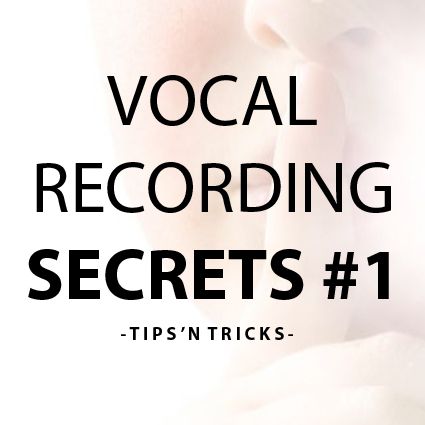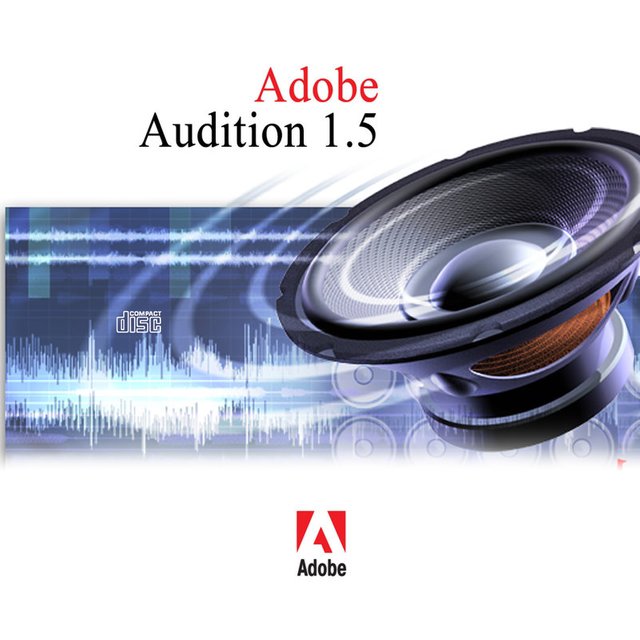Vocal Recording Secrets #1 - Which Program Do I Use for High-Quality Mixing?

There is so much software available on the market and it might not be very easy for you to choose... However, we don't need the most actual software to create high-quality songs. For example, the only software I finally work with are:
- Cool Edit PRO
- Adobe Audition (newer version of cool edit pro)
- Cubase
- ProTools
So, in the past, I was mainly using Cool Edit PRO 2.1, but now I am using Adobe Audition 1.5 which is actually the same program in a 'newer' jacket.

I know, many producers/artists might think now, WTF is he doing, old crappy program... But why? Because it's quite old, it doesn't mean that it's not worthy to use!
I mean, if we listen to my current projects and even the projects in the past, they're all radio-quality and even a few of them reached some radio channels back in the good old days.
90% of all the songs I produced were recorded with Cool Edit PRO or Adobe Audition.
Of course, I don't want to smack down the reputation of all other software, as they definitely do their job, but in my point of view, when you're an home-recording artist or producer, Adobe Audition is a PERFECT FIT.
So, just to give you an overview what options in Adobe Audition I mainly use to mix vocals?
- Dynamic Processing
- FTT Filter
- Graphic Equalizer
- Parametric Equalizer
- Quick reverb
- Studio reverb
- Echo
- Noise reduction
These are the options which I use on all vocals. I know that there are some tutorials on YouTube which are very crappy and I would even avoid following their steps, as in the most cases, it would completely mess up your production. This is why I make use of the opportunity to reveal some recording 'secrets' and give tips and tricks within this community, to all our music lovers, so everyone could give it a try at home. Don't be shy ;)
I mean, I think that most people can agree with me that the songs on the radio currently are 95% full mixed productions, and 'Artists' are not even able to perform their songs live.
It doesn't matter, though... I mean, it works, and if you like the songs, it's fine as I am not here to judge...
Actually, I do a lot of times the same with my productions, and this is why I call myself a recording artist/producer, and not a singer, and many people who came at my studio to records songs weren't singers either, believe me :)
With this, I don't mean that I can't sing at all, but I am man enough to say honestly that I would not be able to perform a half an hour LIVE on stage when it comes to singing only.
So, within one of my next post, I will show you how to record a chorus within Adobe Audition, with multiple voices, how to mix and how this will sound when it's ready.
After that 'tutorial' you might have seen enough to try it yourself and believe me, you would be amazingly surprised on the outcome as it is true when they say that producers can do magic with every voice.
So, this was the first post about which program to use as a home-recording artis/ beginning singer or producer. In the meantime, if you would like to listen to the quality I deliver straight from my home-studio, a couple of my uploaded productions on Dsound below:
https://dsound.audio/#/@clayjr/clayjr-dance-tonight-demo
https://dsound.audio/#/@clayjr/clayjr-magic-superlove
Thank you for reading this article and I promise to reveal some real stuff about vocal recording next time!
Don't forget to follow me for new upcoming articles about Vocal Recording and Mixing!
Hopefully, see you again in my next post!

Looking forward to your next steps in bringing your knowledge across to our community.
Hi @qsounds, nice to hear something from you again. Definitely, actually, I never shared tips which I will be sharing here 'as a good chef doesn't tell his secrets', but on the other hand, it's quite impressive how far people get by just using the right tools and if it helps other musicians further on this platform in some way, why not... See you at the next post!
I know: Knowledge is Power, but it would be so good when we can see each other as colleagues instead of competition.
Totally agree with you and I think that we come closer to reach this whenever we understand how some musicians work. It doesn't make you a bad musician when you're not a great singer so you mix more intensive to have a nicer end product because in the end, you're busy with making music and that's all that matters :) Also, I think a bit of a competition is good as it keeps you sharp, as long as we just respect each other for what we're doing, all in our own way.
Respect is the magic word in my opinion. And not only in music and art, but in anything and anyone :)
I'm glad we're on the same page @qsounds !